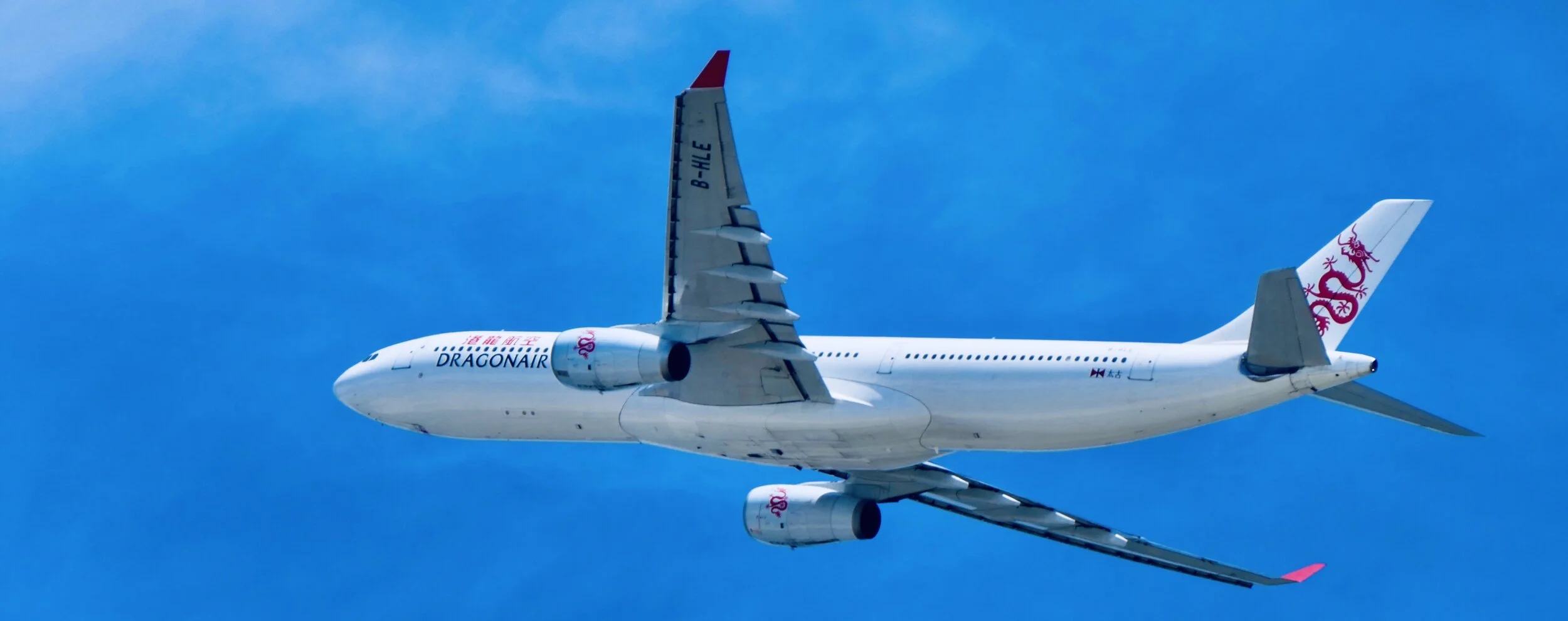Slaying the Dragon.
Cathay Pacific is a great brand. As a regular customer, I can attest to that. During my 40 years of flying with them, we've had our issues. But here's the thing, I'd rather fly CX economy than any US airlines business class; that's the degree of difference.
Thus, it's sad to see the layoffs announced this week as the airline struggles to survive. The demise of subsidiary Cathay Dragon — the former Dragon Air — marks the end of an era. I'd flown with them throughout China, enjoying a reliable and safe service. Whatever the business merits of the layoffs, the impact on thousands of families will be severe. And the ripple effects will spread across the entire community.
The company is three distinct operations: Cathay Pacific, Cathay Dragon and Hong Kong Express. I'm guessing it's easier to close one down than have managers try to negotiate the complexities of integrating the three. With a top-end airline under the Cathay Pacific banner and a budget carrier — Hong Kong Express, the whole is less problematic to manage.
Covid-19 visited catastrophic consequences to CX as passenger travel collapsed by around 98%. Staff cuts, redundancies and new employment packages must occur if the airline is to have any chance of survival. A monthly cash burn of some HK1.5 billion isn't sustainable.
But, these challenges aren't new because CX struggled for several years with patchy profitability. The bottom line suffered from increased mainland competition, trade disputes and poor decisions by the management.
“A monthly cash burn of some HK1.5 billion isn’t sustainable. ”
Fuel hedging, a gamble on avgas prices rising, cost the company billions of Hong Kong dollars. In 2015, HK$8.45 billion went down the tubes, followed by HK8.46 billion in 2016. The impact of these losses continued into 2017, eroding any gains made elsewhere.
By March 2018, CX posted a smaller than expected annual loss due to a rebound in the cargo market. These results had analysts declaring that the worst was over for CX, as it would soon move into the black. Yet, lurking around the corner was civil unrest in 2019 and then Covid-19. No one could see that double whammy coming.
The events of 2019, had a profound impact. With widespread disorder in Hong Kong, the company cut capacity as tourists stayed away. It didn't help matters that a few militant CX staff played a prominent role in the airport occupation in August.
Images of passengers scrambling over protesters to get airside spread around the world. This action did tremendous damage to Hong Kong's image. Then the protest turned violent with a mainland reporter taken hostage. The failure of CX top management to initially condemn these events didn't play well on the mainland. A boycott kicked off, further eroding passenger figures.
Likewise, the arrests of CX staff for rioting, public order offences and for doxxing police officers set alarm bells ringing. The mainland authorities perceived these events as a potential threat to civil aviation. CX needed to act and act fast.
In response, CEO Rupert Hogg resigned admitting he was at fault. Deciding that the actions of some CX staff posed a threat, China's civil aviation regulator imposed new rules. These required CX to list staff flying into its airspace before flight departure. Meanwhile, crews reported enhanced vigilance at mainland airports with searches and other precautions.
How will this political dimension play out? Cathay Dragon operated many profitable routes on the mainland, the one aviation sector that is returning to normal operations. Of course, CX wishes to keep these routes. The final decision on that rests with regulators.
On his departure, Hogg noted the 'all-important' China market. These sage words highlight the future success of the company rests with the mainland. After all, Air China owns 30% of CX in a cross-share arrangement; while Swire Pacific retains the most significant stake at 45%, and Qatar Airways owns 9.94%. These numbers tell a story.
Covid-19 will pass. Once a vaccine arrives, airlines will rebound, albeit in a restructured form with reduced head-counts. In the interim, if CX can survive, then I have no doubt the company well-positioned to prosper.
